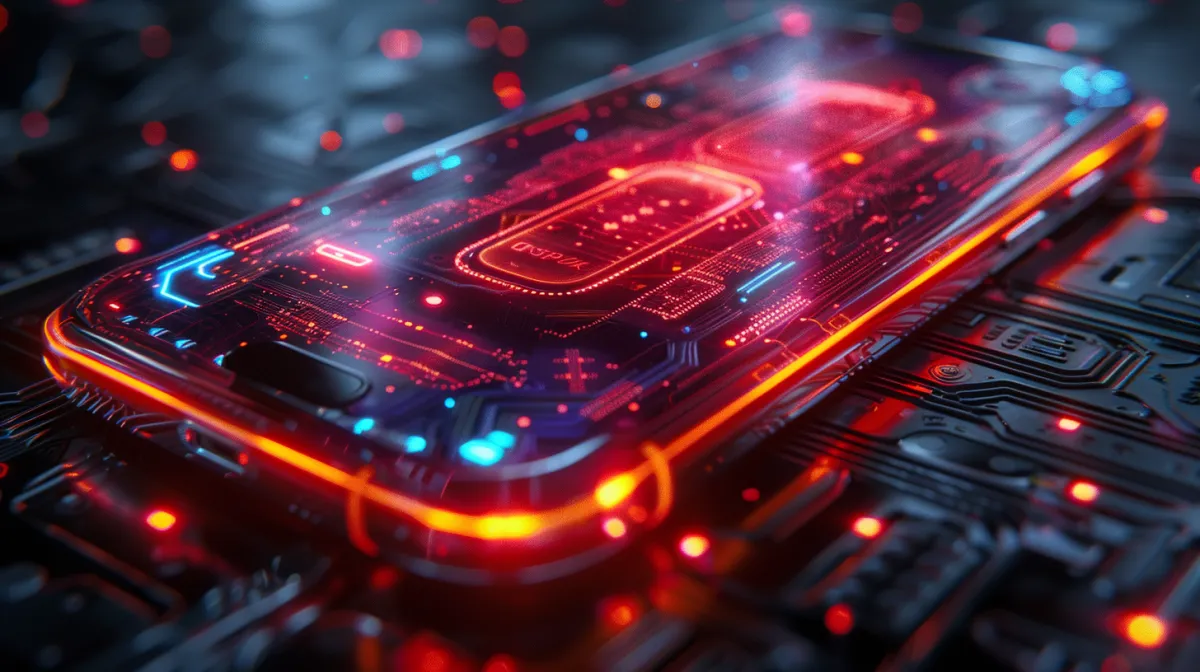Noodling with Intelligence
Stay Informed, Inspired, and Ahead in the World of Artificial Intelligence and Business

Noodling with Intelligence
Stay Informed, Inspired, and Ahead in the World of Artificial Intelligence and Business

5 Killer Innovations That Revolutionized Tech
You may think you've seen it all when it comes to technological advancements, but have you truly considered the impact of these 5 killer innovations that reshaped the tech landscape?
From the birth of the World Wide Web to the evolution of Artificial Intelligence, each innovation has left an indelible mark on how you navigate the digital domain.
Explore where ideas turn into reality, and boundaries are meant to be pushed. But the most important aspect playing in favor of these inventions was also market trends.
So, what makes these innovations truly game-changers?
Key Takeaways
The World Wide Web transformed global information sharing and communication.
Mobile technology advancements revolutionized user experience and daily life.
Space exploration milestones pushed the boundaries of human knowledge and discovery.
Artificial intelligence and blockchain technologies reshaped industries with advanced capabilities.
The World Wide Web
The World Wide Web, a game-changing invention by British computer scientist Tim Berners-Lee in 1989, transformed how information is globally shared through interlinked hypertext documents accessed via the internet. This innovation revolutionized the way people interacted with data, creating a vast network of interconnected information that transcended geographical boundaries. Tim Berners-Lee's vision of a globally connected web laid the foundation for a digital revolution that continues to shape our world today.
With the advent of web browsers like Mosaic and Netscape in the early 1990s, the World Wide Web became accessible to a broader audience, fueling further innovation and expansion. These browsers provided users with intuitive interfaces to navigate the vast expanse of information available online, democratizing access to knowledge and resources like never before.
The establishment of the World Wide Web Consortium (W3C) in 1994 further solidified the standardization and evolution of web technologies. This collaborative effort aimed to assure the interoperability and sustainability of the World Wide Web, driving continuous innovation and improvement in the digital landscape.
Through Tim Berners-Lee's pioneering spirit, innovation process and the collective efforts of the tech community, the World Wide Web has become a cornerstone of modern society, fostering innovation, connectivity, and boundless possibilities for the future. Embrace the power of innovation and continue to explore the endless opportunities that the World Wide Web has to offer.
The Smartphone
Smartphones have revolutionized the way we communicate and access information, blending mobile phone capabilities with advanced computer functions. The smartphone revolution has brought about a new era of mobile computing, transforming our daily lives in remarkable ways. Here are three key aspects of the smartphone revolution:
Touchscreens: The introduction of touchscreens in smartphones completely changed the user experience, making interactions more intuitive and user-friendly. Touchscreens enabled effortless navigation and opened up a world of possibilities for innovative apps and games, revolutionizing how we interact with technology.
App Economy: Smartphones fueled the explosive growth of the app economy. Developers now have a platform to create diverse applications for entertainment, productivity, education, and more. This vibrant ecosystem has provided users with a plethora of tools and entertainment options right at their fingertips, shaping how we work and play.
Continuous Innovation: The smartphone industry is a hotbed of competition and continuous innovation. Manufacturers are constantly pushing the boundaries of design, features, performance, and connectivity options to stay ahead in the market. This relentless drive for innovation guarantees that users always have access to cutting-edge technology and propels the industry forward.
The smartphone revolution continues to drive progress and shape the future of technology, promising even more exciting developments ahead.
Space Exploration
Embarking on journeys beyond Earth, humanity's exploration of solar system and the outer space has opened up new frontiers of discovery and innovation. The Apollo 11 mission stands as a proof of our ambition, marking the first successful manned moon landing in 1969. This historic achievement not only captured the world's imagination but also propelled us further into the domains of space exploration.
In 1990, the deployment of the Hubble Space Telescope revolutionized astronomy, offering unprecedented views of deep space and outer space activities in our universe. Thus vastly expanding our cosmic understanding. This incredible tool has provided scientists with invaluable insights into the universe's mysteries, pushing the boundaries of our knowledge.
The Mars Rover missions, starting with Sojourner in 1997 and continuing with Curiosity and Perseverance, have been instrumental in gathering essential data about the Martian landscape and its potential for harboring life. These missions represent a significant leap forward in our quest to understand the Red Planet.
SpaceX, founded by Elon Musk in 2002, has disrupted the space industry with its innovative reusable rocket technology. By driving down costs and increasing access to space, SpaceX has redefined the possibilities of space exploration, paving the way for a future where venturing beyond Earth isn't just a dream but a reality.
Artificial Intelligence
In the domain of tech, Artificial Intelligence has sparked a transformative revolution by enabling machines to replicate human cognitive functions. This breakthrough has opened up a world of possibilities, reshaping industries and revolutionizing the way we interact with technology.
Here are three key aspects that showcase the power of Artificial Intelligence:
1. Data Processing: Artificial Intelligence has the ability to process and analyze massive amounts of data at incredible speeds. This enables businesses to gain valuable insights and make informed decisions based on patterns and trends that would be impossible for humans to detect.
2. Automation: AI technology can automate repetitive tasks, streamline workflows, and improve efficiency across various industries. From chatbots handling customer service inquiries to robots performing complex surgeries, AI is revolutionizing how work is done.
3. Personalization: AI algorithms are capable of personalizing experiences for users by analyzing their behavior and preferences. This can be seen in recommendation systems used by streaming services like Netflix or e-commerce platforms like Amazon, which offer personalized content and product suggestions tailored to individual users.
These key aspects demonstrate the immense power and potential of Artificial Intelligence in transforming industries, enhancing productivity, and delivering personalized experiences to users.
Artificial Intelligence continues to evolve rapidly, pushing the boundaries of what technology can achieve and offering endless possibilities for innovation and growth. Some are waiting the technological singularity when human mind and AI will fuse together.
Silicon Valley, located in the heart of San Francisco, is busy building the next generation of AI innovation programs.
Blockchain
Blockchain technology, with its foundation in secure and decentralized digital transactions, has revolutionized the way data is managed and transactions are conducted across networks.
In a blockchain, each block contains data, a timestamp, and a link to the previous block, creating an immutable chain of records. Cryptocurrencies such as Bitcoin leverage blockchain for peer-to-peer transactions, eliminating the need for intermediaries like banks.
Smart contracts, which are self-executing contracts with terms coded directly into them, are transforming industries by automating processes on the blockchain. The distributed ledger system of blockchain guarantees data integrity, reduces fraud, and enhances trust in various sectors beyond finance.
This decentralized approach to managing transactions and information can potentially disrupt traditional systems by providing increased transparency, security, and efficiency.
As the technology continues to evolve, exploring the vast possibilities of blockchain in sectors like supply chain management, healthcare, and voting systems promises to reshape how we interact with digital transactions and data management, opening up new avenues for innovation and collaboration in the digital age.
Conclusion
You've witnessed the incredible power of innovation in shaping the world around you. These killer innovations have changed the game from the World Wide Web connecting people globally to smartphones revolutionizing communication, space exploration pushing boundaries, artificial intelligence enhancing capabilities, and blockchain transforming transactions.
We urge you to participate in this innovation journey and get your communities involved to transform life on this planet. We must work at every level. Personal, community and government levels. Regional governments and national governments indeed play crucial roles in fostering innovation within a country.
Embrace the endless possibilities that lie ahead as we continue to push the limits and redefine what's possible in the ever-evolving world of technology. The future is limitless, and the impact is revolutionary.

